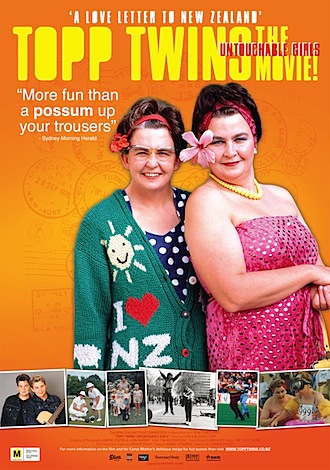The first thing you need to know about It’s Complicated is that it isn’t very complicated at all. The plot, the characters, the gags (dear God, especially the gags) are…
Read More

I’m not normally one to make box office predictions but I have a gut feeling that The Topp Twins: Untouchable Girls is going to be massive. It’s an inspiring New…
Read More
Actually, not so much second thoughts as something interesting discovered after the the review went to print. In the blog roll to the right you will find a link to…
Read More
You can forget all talk of an Oscar for Heath Ledger's Joker. If anyone is going to win an Academy Award for wearing some dodgy make-up in a noisy blockbuster…
Read More
